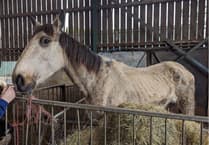Picture your grandparents moving in and out of the car, climbing stairs or lifting their grandchild.
Do they perform these tasks fast and with ease, or slowly and with a struggle? Chances are, the latter.
Many put this down to old age, but don’t consider their muscle health. There are vast amounts of research confirming that if you increase your muscle strength and power, you will be able to move faster and stronger and even live longer.
Physically inactive people can lose as much as three per cent to five per cent of their muscle mass each decade after the age of 30.
Even if you are active, you’ll still have some muscle loss. This is known as sarcopenia. While sarcopenia can decrease life expectancy and quality of life, there are actions you can take to prevent and even reverse the condition.
When you read about lifting weights, you may think of huge 30kg dumbbells with chalk on the handles being pressed over the head of a testosterone-filled man in his tank top.
But there are many different varieties of weight training, which come in the form of resistance bands, suspension trainers, kettlebells, weighted balls and even just using your own body weight.
So what’s the best way to train to live longer? Resistance train two to three times per week, choosing multiple exercises for your lower and upper body.
Pick a weight with a load that is not easy to lift, but manageable – around a seven out of ten level of difficulty. Complete one to three sets of eight to 12 repetitions of each exercise, with 30 to 60 seconds between sets.
Lower-body exercises can include standing from a seated position, stepping up on to a box or stairs, and holding something for balance while raising your leg laterally. Upper-body exercises can include holding a weight by your shoulders and pushing the weight up, standing on a resistance band and pulling the band to the side of the body, and putting your hands on a wall, lowering your body and pushing your body away.
With all of these exercises, it is important to have a professional check your technique to ensure you are performing them correctly.
I have trained clients who are over 50 yet move better and are so much stronger than they were in their 30s. It makes them happy to see progress and they just wish they started sooner.
If you think it’s too late to start resistance training, or that you won’t enjoy it, please just give it a try and I hope you reap the rewards.
I hope you can achieve your health and fitness goals with confidence and knowhow. If not, email [email protected] and I’ll help where I can.
Rob Carr




